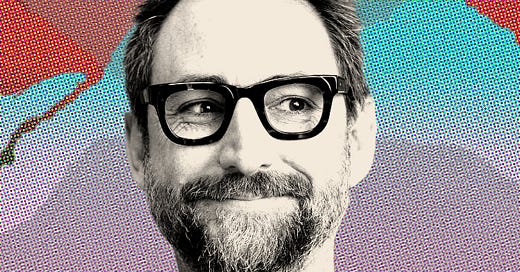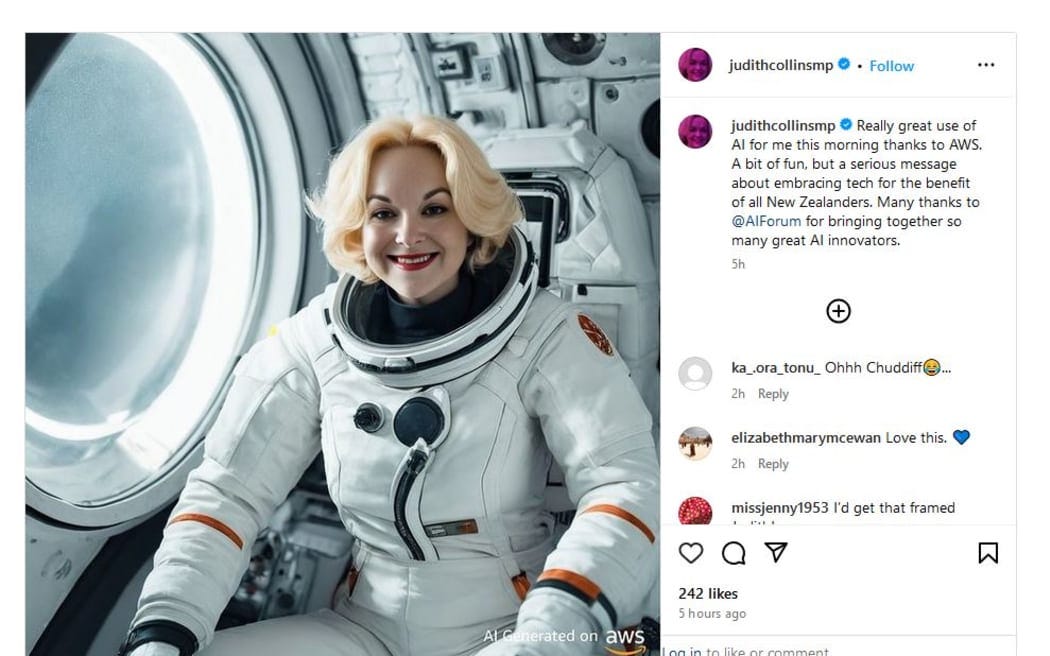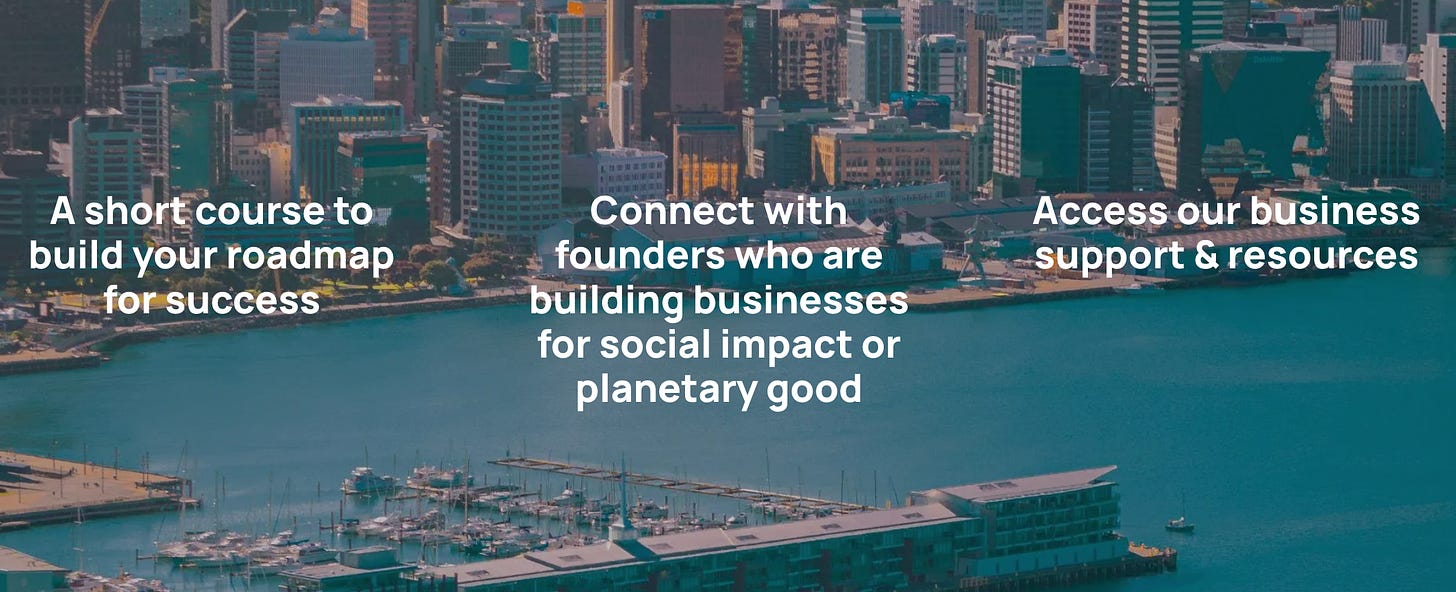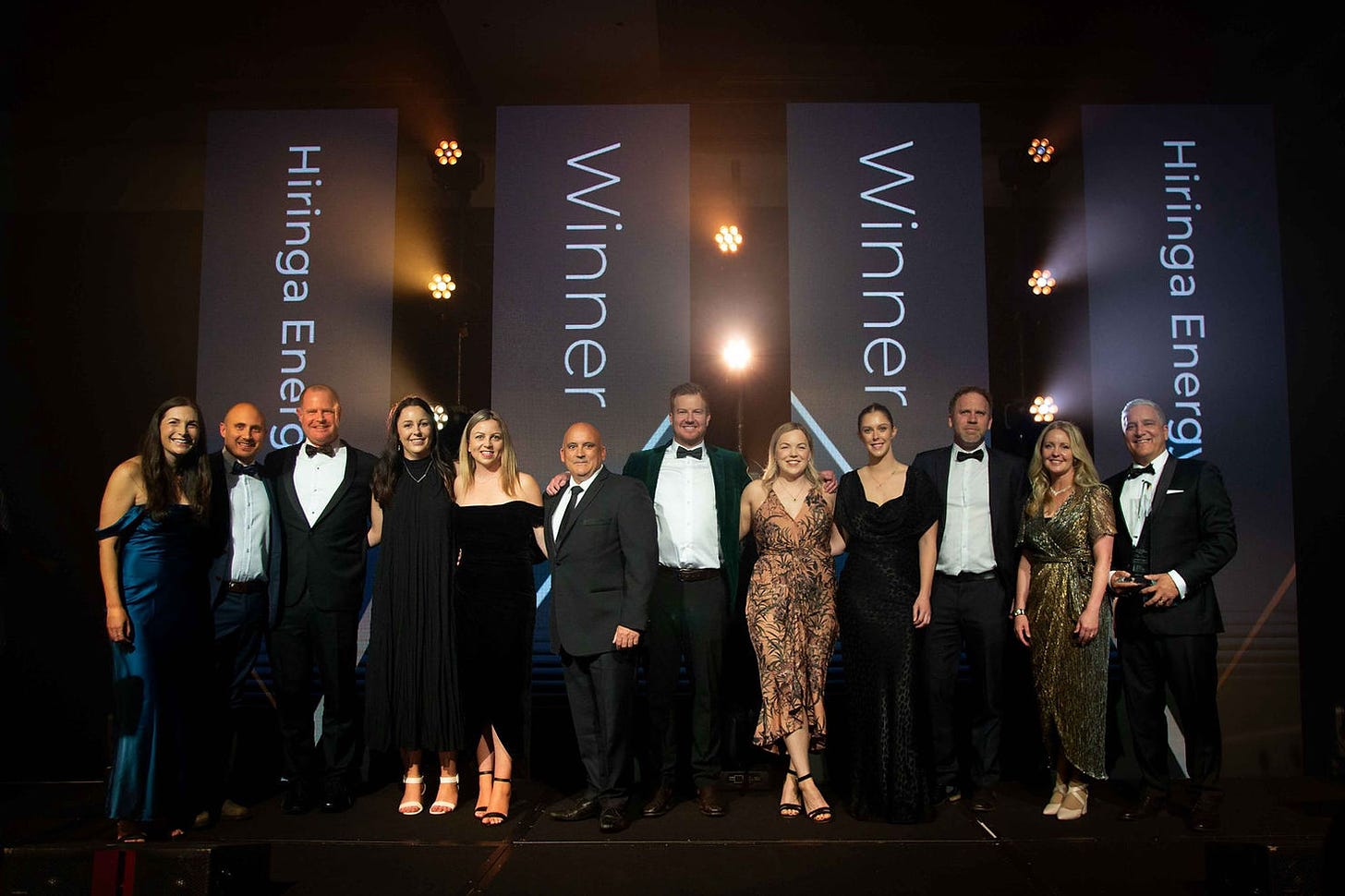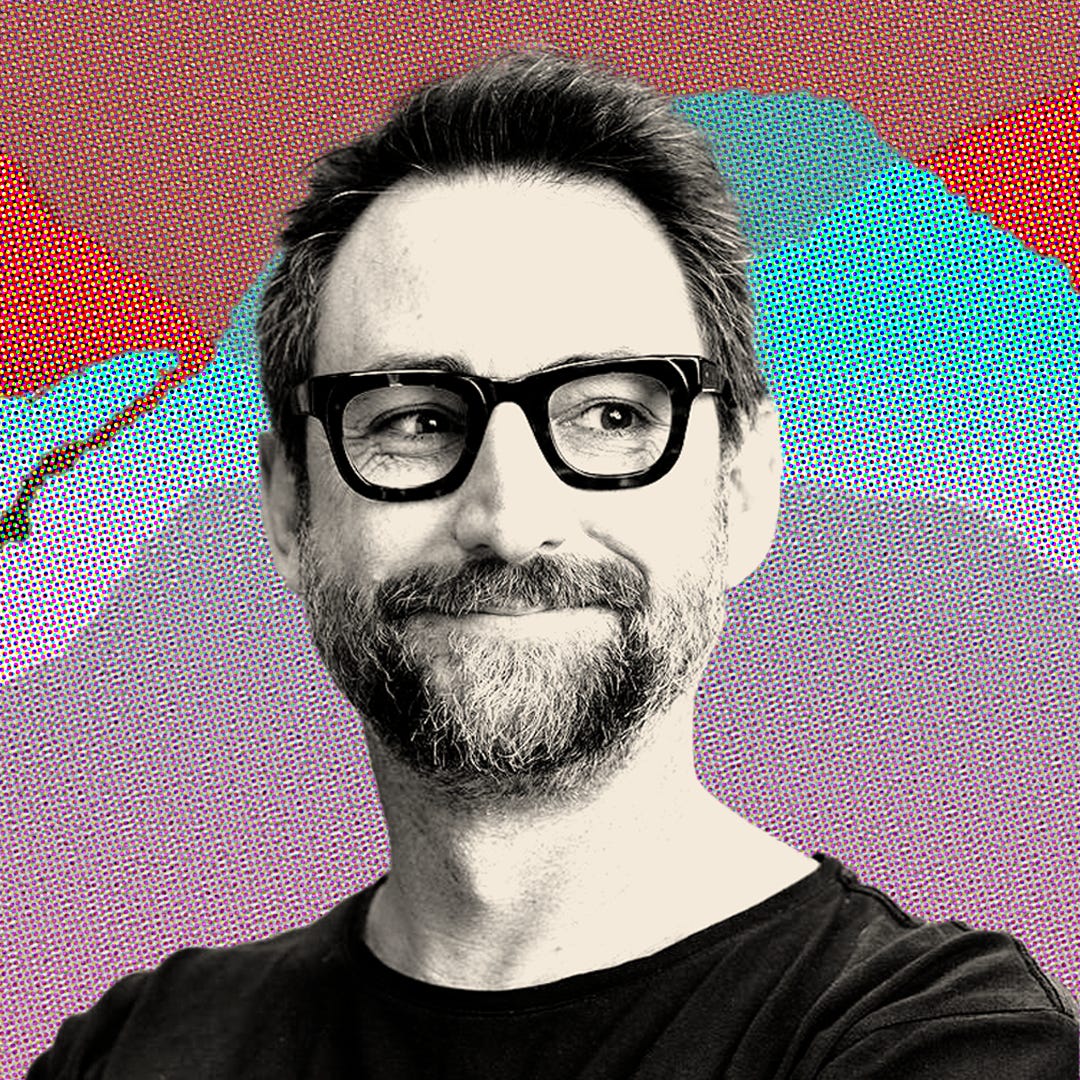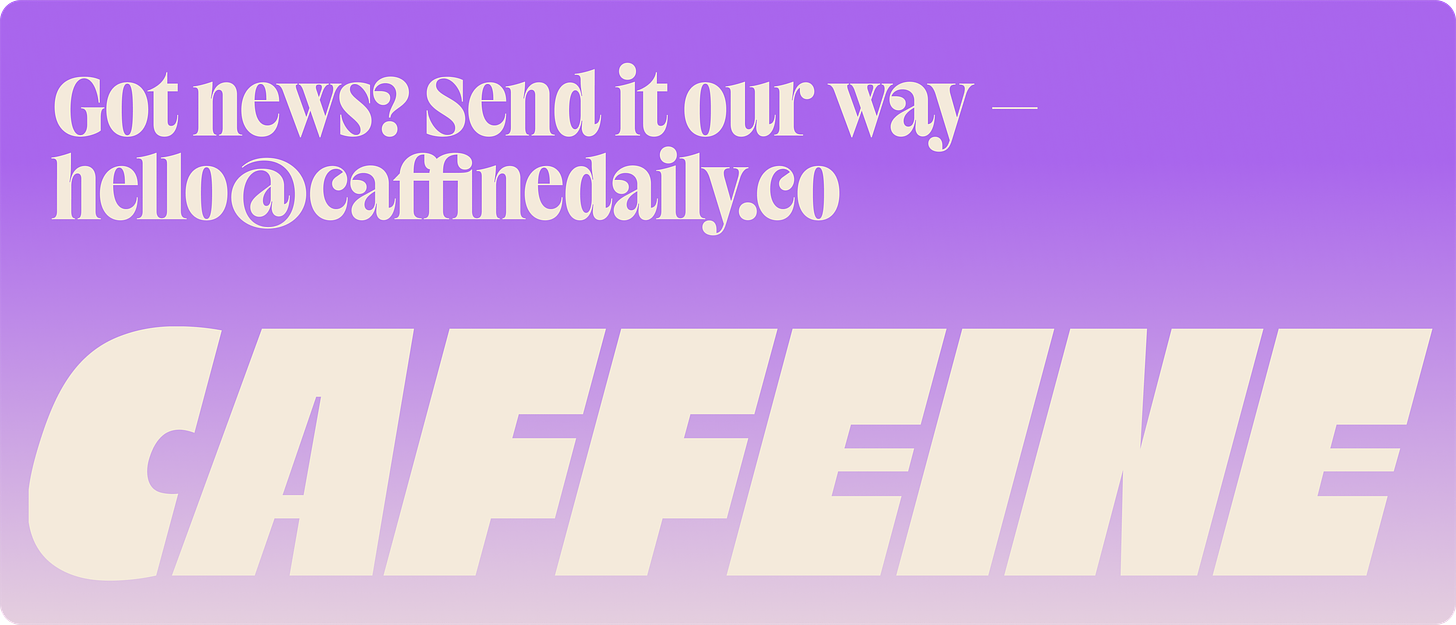Real Answers to Your Burning Startup Questions
News from New Zealand's startup ecosystem, straight to your inbox.
Good morning Caffeinators,
Happy Thursday!
The weekend is in sight, spring is in session, and Caffeine has another stacked newsletter to get you through to Friday.
Today we’re bringing you part two of our ‘Founders in the Wild’ series in partnership with Unyoked. Sharesies Co-Founder and Co-CEO, Brooke Roberts shares her reflections after her two day digital detox in nature.
On Thursdays we also like to check out what’s happening worldwide and for the TLDR version, the vibes are not good for Apple and Google. A major loss for both companies in the EU and more antitrust action underway.
Our very own Founder James Hurman is also in the hot seat with your burning questions.
Sit back, sip that coffee and enjoy your Caffeine.
Finn & the Caffeine team
Reflections after taking two days out with Unyoked | Sharesies Co-Founder and Co-CEO, Brooke Roberts
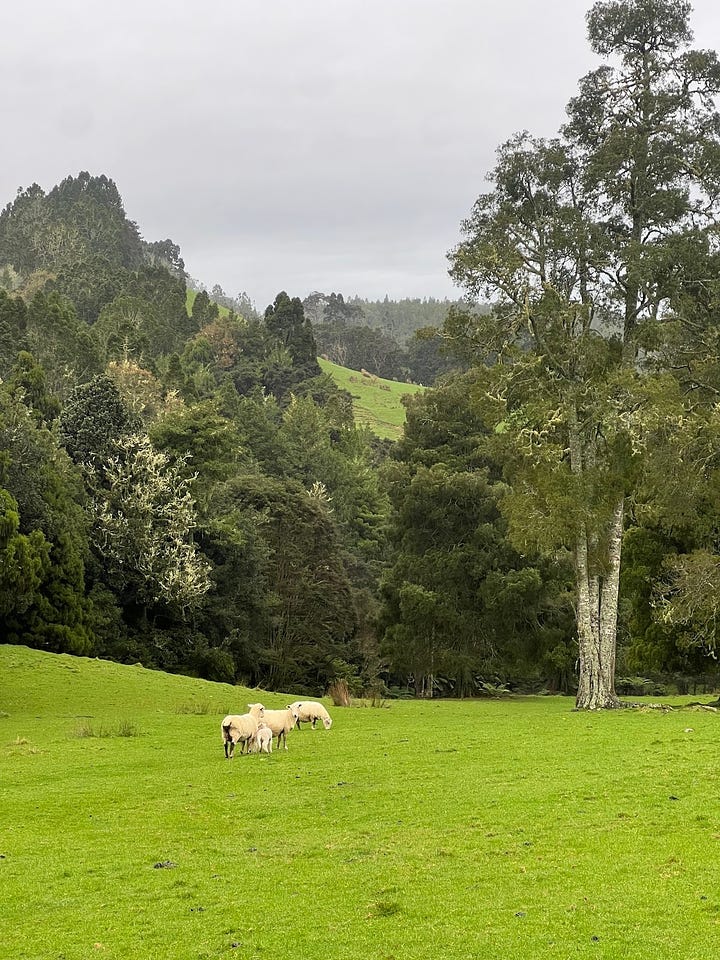
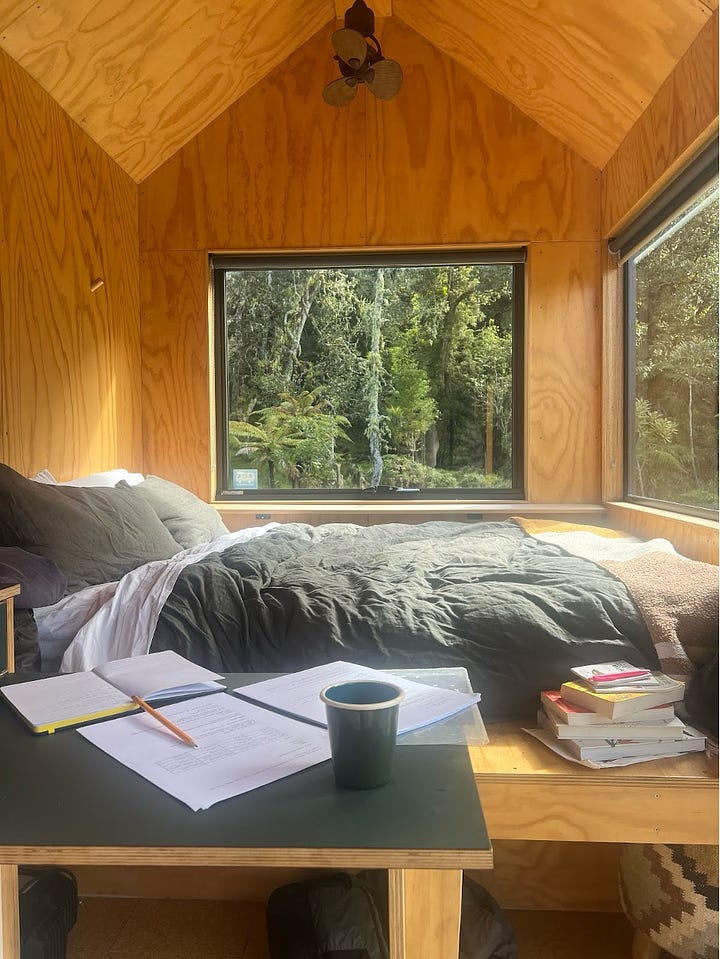
I arrived at the cabin full of excitement, with my wheelbarrow full of food and my bag(s) on my back.
Along with the essentials, I took a portable Bluetooth speaker, an excessive amount of books, a notebook and a pen.
Just before I left I read an Unyoked review which said “initially your brain may well be ‘screaming’ at you to do something productive”. It helped me get into the mindset of not trying to be productive and to just relax into the experience.
I had an initial guilty feeling about being offline and not being available for people, my team at work, my kids, or my friends and family. Once I gave myself permission to not be on call, I began to relax into the experience and was surprised at how fast time moved.
The next day I woke as soon as it was light. I heated the kettle on the stove, made a cup of tea and began reading and writing.
Surprising myself, I ended up having a doze later in the morning. I followed this up with lying around, reading in the hammock, making a sandwich, climbing a hill, reading more, watching and observing the movements around me, hanging out with lambs and getting the fire cranking.
At some point during the day, I realised my mind had become quiet. I had no to-do list, no actions to take, and no thoughts to ruminate on. I’ve never been a good meditator and I don’t actively practice, but I assume that time was a meditative experience for me.
When I entered the wider world again I took some direct actions. The headspace I had gained, helped to provide clarity on a few things I had been thinking about. I left feeling focussed, calm and with a stronger sense of purpose and direction.
As I reflect on my pre-write up, I think I unintentionally managed to achieve quite a few of my goals. I leave wondering if I should make going to Unyoked at least a yearly habit.
P.S. Although it was completely safe, I didn’t sleep very well because I’m a scaredy cat 😅 Read More
Know a Founder who needs some time out? Keep an eye out on our LinkedIn today to nominate someone for the next two day night detox thanks to our friends at Unyoked.
Government to launch AI chatbot called Gov-GPT: The government has introduced Gov-GPT, a virtual assistant based on Chat-GPT, to help Kiwis easily access information about the government and its agencies. Technology Minister Judith Collins unveiled the tool at the Aotearoa AI Summit, with Callaghan Innovation set to pilot the chatbot. Read more.
Early-Stage Wellington Founders: Apply Now for Impact Mini Accelerator: The 2024 Impact Mini Accelerator is a 5-week programme for Wellington-based early-stage founders, offering hands-on workshops and tools to help build successful, impact-driven startups. Participants will collaborate with fellow innovators and gain access to Creative HQ’s proven accelerator toolkit. Apply here.
Hiringa wins Low Carbon Future Award: Hiringa Energy, a green hydrogen company from New Plymouth, won the Low Carbon Future prize at the 2024 New Zealand Energy Awards. The company opened its first three green hydrogen refuelling stations in 2024, with a fourth coming soon, helping reduce carbon emissions from heavy transport. Judges praised Hiringa as a pioneer in New Zealand’s low carbon transition. Read more.
Tech titans lose appeals in EU: Google and Apple have been slapped with billions in antitrust fines and back taxes respectively after losing a pair of appeals with EU Courts. Even for companies with more money than God, with a total bill over $15b it has to sting. More.
DoJ Deja vu: And more bad news for Google across the pond in the UK, as a legal rematch with the Department of Justice kicks off. This time the DoJ is alleging monopolistic practices in Google’s advertising model after winning a similar case over its search model. More.
Hardware is king in climate startups: A new report from Congruent Ventures and Silicon Valley Bank shows hardware is proving most promising in the booming green tech sector. The report surveyed over 50 experts in academia, finance and private sector businesses to assemble a list of standout companies. More.
Real Answers to Your Burning Startup Questions.
James Hurman, Founder of Caffeine, Previously Unavailable, and the Master of Advertising Effectiveness, and Co-Founder of Tracksuit and AF Drinks is in the hot seat today. Know a Founder to take the seat next? Let us know hello@caffeinedaily.co
What is the biggest mistake you see early-stage founders make when trying to find product-market fit, and how can they avoid it to ensure they're building something people truly want?
There are a couple of things that come to mind - the first one’s pretty obvious, and that’s being seduced by your own idea. ‘This is a great idea and now I just need to figure out how to make people buy it’ is a really bad place to start. It’s better to start with the mindset that ‘this is a bad idea and now I need to turn it into a good idea’. Even if you think it’s a great idea. A truly great idea is one that people part with money for, even when the product doesn’t exist yet. With Tracksuit, Ideally and my Master of Advertising Effectiveness programme, we sold significant revenue off a powerpoint deck describing the product and showing some mocked up screens. Only then did we actually build the products.
The second thing, related to that, is getting ahead of yourself and expending cash or other resources as if you’ve already found product-market fit, or are just about to. You probably haven’t, and you’re probably not. You want to save all your money for execution. Churning cash prior to PMF is just digging a hole you then need to climb back out of. And unlike digging an actual hole, the digging bit is really easy and the climbing back out bit is really, really hard. You want to figure out the most capital-efficient way possible to get to PMF. To experiment incessantly and as cheaply as possible toward the ‘aha’ moment when people start saying yes, relatively easily, and sign a contract or give you money. Then build the team and operation to execute.
I really enjoyed the recent Diary of a CEO podcast with Mac Randolph, one of the Netflix founders. He talks through their super-hard path toward PMF, all the mistakes they made, and how they learned to experiment ever-more cheaply toward the product feature that finally got them PMF. It’s a great story and consoling to be reminded that even massive successes like Netflix were bad ideas at the beginning.
When developing the story behind your brand, how do you strike the balance between authenticity and what resonates with your audience, especially in a saturated market?
The conventional wisdom is that you use customer research to understand what they want, then build a story that aligns with that, then make the business adhere to that story. That’s BS and it doesn’t work. Reasons being that (a) humans have a familiarity bias, meaning customers will lead you toward a story or brand that feels like everyone else’s, in a world where being distinctive is much more important than being ‘right’. And (b) that groups of people can’t easily adhere to anything that isn’t true and doesn’t come naturally. Your story is as much for your staff as it is for your customers. And if the company naturally acts in a way that suggests the story isn’t true, the story isn’t believed internally, and that trickles out to the story tanking externally.
When Adam Morgan coined the term ‘Challenger Brand’ in his seminal book ‘Eating the Big Fish’, he talked about ‘lighthouse brands’. These were brands that stood apart from everything else and attracted people toward them and their unique point of view, as opposed to trying to say what customers thought they wanted or were immediately comfortable with. Challengers succeed because they win people over to their point of view, not because they appease their customers. At Amazon, one of their core principles of innovation is ‘we’re prepared to be misunderstood for a long time’. What they mean by that is that when you have a novel idea (or story), most people won’t get it at first. Amazon don’t get dissuaded by that. They understand that people take a little time to calibrate themselves to a new idea. Some people (especially early customers) need to ‘get it’ and love it straight away, but the rest will metabolise it over time and eventually be won over.
The balance is (a) make sure it’s authentic AF, (b) find the language that compels people over time.
Also, FFS don’t go into saturated markets. It’s a crazy place to start. As a founder, your first job is to identify a meaningful problem that no one else is solving and that people would pay to have solved, then create a novel, valuable solution to that problem. When you do that, you don’t end up in a saturated market.
As a founder who's started multiple successful ventures, what was the most surprising challenge you faced in the early days of launching a new business, and how did you overcome it?
This is interesting because surprising challenges are just so common when you’re creating something new, so I’ve learned to put myself in a mindset where I see them as BAU as opposed to challenges. I’ve been (metaphorically) punched in the face so many times that I just expect to be, and I’ve evolved to stay pretty calm and just do what’s needed.
To be honest, the biggest one was probably when we launched Caffeine with my original co-founder Julie Gill, who had a serious cancer diagnosis about a week after we launched. That threw everything into total disarray. Julie was the CEO and the revenue driver for the business, but more importantly she was a human-being, facing the biggest personal challenge of her life. Jules is a massive trooper and consummate professional, and was hell bent on handling the chemo while also driving the business. Any normal mortal wouldn’t have been able to strive on in that way, but Jules insisted on it. I struggled with my sense of duty to Jules and her health, and my sense of duty to the business, and it was really tough for me. Eventually it became clear to Julie that her health and recovery was far more important, which I was relieved about as I was so worried for her. So I scaled the business back to a burn that we could afford, then re-based and built back up from there.
One thing I learned from Richie McCaw was a trick elite athletes use. He talked to our team about how overwhelming it can be to run out on the field in a critical test match, with the lights, the screaming crowds, the other team eying you and the nation’s expectations on your shoulder. He had this acronym - W.I.N. - which stands for ‘what’s important now?’. He’d focus on the present and what he needed to do in the moment, and put everything else out of his mind. It’s a great trick for founders. Often, we have the luxury of thinking many steps ahead. But in a moment of intense pressure, focusing entirely on what’s important right now is a way to quieten the mind and take the necessary steps, one by one, that get you back to normal mode.
What was important in the Caffeine situation was to look after Jules as the first priority, and then look after the business as best we could, and take a little more time than anticipated to get it to a good place. It involved a heap of tough decisions and a really long period of uncertainty and stress - but the fact that you’re reading this today, well, guess what, we made it through! And Jules has made a full recovery and is doing great building her Best Places to Work business.
"Timing, perseverance, and ten years of trying will eventually make you look like an overnight success." ~ Biz Stone, Co-founder of Twitter


